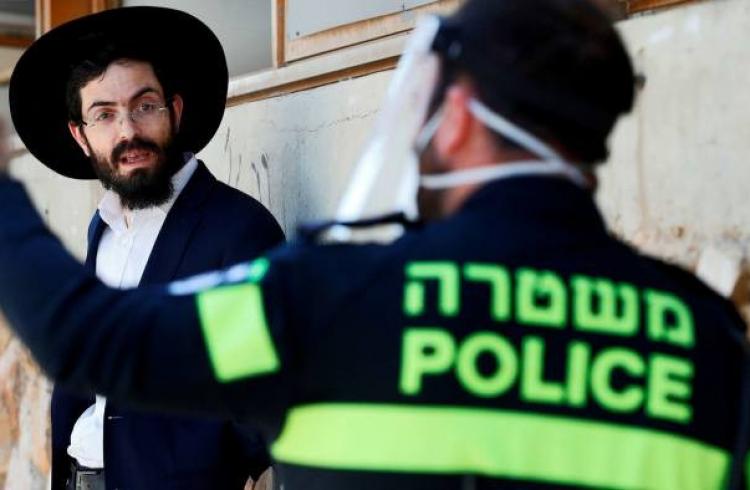Mohammed Abu Oun
The occupation is currently living a complex situation as it is affected by the existing political crises and the most recent global health crisis (i.e. the spread of the Coronavirus ‘COVID-19’). The number of infected in the occupation’s entity exceeded 4,000 patients, and the occupation announced the death of 15 settlers until this day.
Politically, the occupation has carried out three Parliament elections without reaching conclusive results. For over a year, there has not been an agreement on the formation of an Israeli government that could fill the political vacuum.
On the one hand, Benjamin Netanyahu, Chairman of the Likud and the Right Bloc, has been trying to buy time and maintain his position as the Prime Minister especially that he is facing charges of bribery and corruption. On the other hand, Benny Gantz, Chairman of the Blue and White Alliance and the Left and Center Bloc, has been trying to remove Netanyahu from the political arena and take over his position.
The Israeli politicians, as always, never miss the opportunity to take advantage of the circumstances to achieve their personal goals and strengthen their reputation in the political conflict. Netanyahu, for example, has used the Coronavirus to spread fear among the Israelis and exaggerated the expected losses. He said that the death rate will rise in the streets, and that it is time to announce an emergency government or form a unity government with Gantz. The latter, however, insisted that Netanyahu must not be part of the future political landscape of 'Israel’.
The Corona-threat has suspended the work of the Israeli courts and judicial system. As a result, Netanyahu’s trial was postponed from mid-March to May 24. Bibi, too, has hinted for the formation of an emergency government to face the current ‘exaggerated’ health crisis.
Considering Gantz’ waning popularity, according to recent polls, he has realized that after three rounds of elections he is ineligible to fight Netanyahu politically. He also realized that should Netanyahu announce the formation of an emergency government, any hopes of ruling would fade away. Gantz knows that the false unity of his bloc would be exposed any second, so he has attempted to limit his losses and take whatever available gains.
Still, Gantz probably had a better reason to accept establishing a partnership with Netanyahu: The Israeli entity’s inability to hold a fourth round of elections amidst the current Corona-threat. Once again, the Coronavirus serves Netanyahu’s interests and shows how fortunate he is.
Using his political wit and taking advantage of Gantz’ ambition to rule, Netanyahu was able to make use of the timing and current health situation to his own advantage and agreed on joining a unity government headed by Netanyahu, first, and Gantz a year and a half later.
The two parties agreed that during Netanyahu’s term as Prime Minister, Gantz would become the vice president and would take the Ministry of Foreign Affairs (along with other important ministries such as the Defense, Justice and Economy) while the Likud would take the Ministries of Education, Health, Finance and Interior.
Perhaps Avigdor Lieberman is the biggest loser in such agreement as he lost his role in determining the coming Prime Minister. The Joint-List comes next as it lost its card after supporting Gantz against Netanyahu since Gantz now became his partner in ruling. Arabs lost their chance of being engaged in the political game and of passing laws and legislations that serve the Palestinian Arab community in the occupied lands.
It is expected that the political conflict would end and the 35th government would be formed. However, this temporary political truce only hides several important disputes and differences which have been revealed through the current political storm. It has exposed the disparity and disunity among the Israelis in their community, and also exposed the political exploitation of the entity.
At the end of such a long fight, can the occupation maintain its strength especially amidst a state of social fragmentation? Can the idea of political diversity work despite the occupation’s political tendency towards the Right and extremism and its inconsideration to the leftists and Arabs? It is clear that this critical period will reveal the truth about the fragility of the Israeli community





